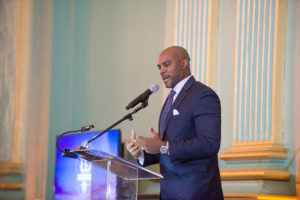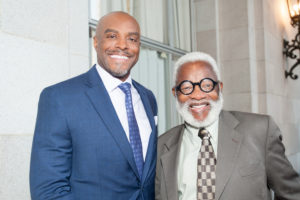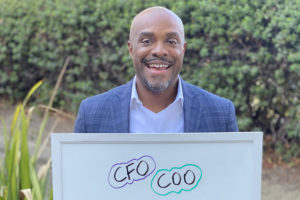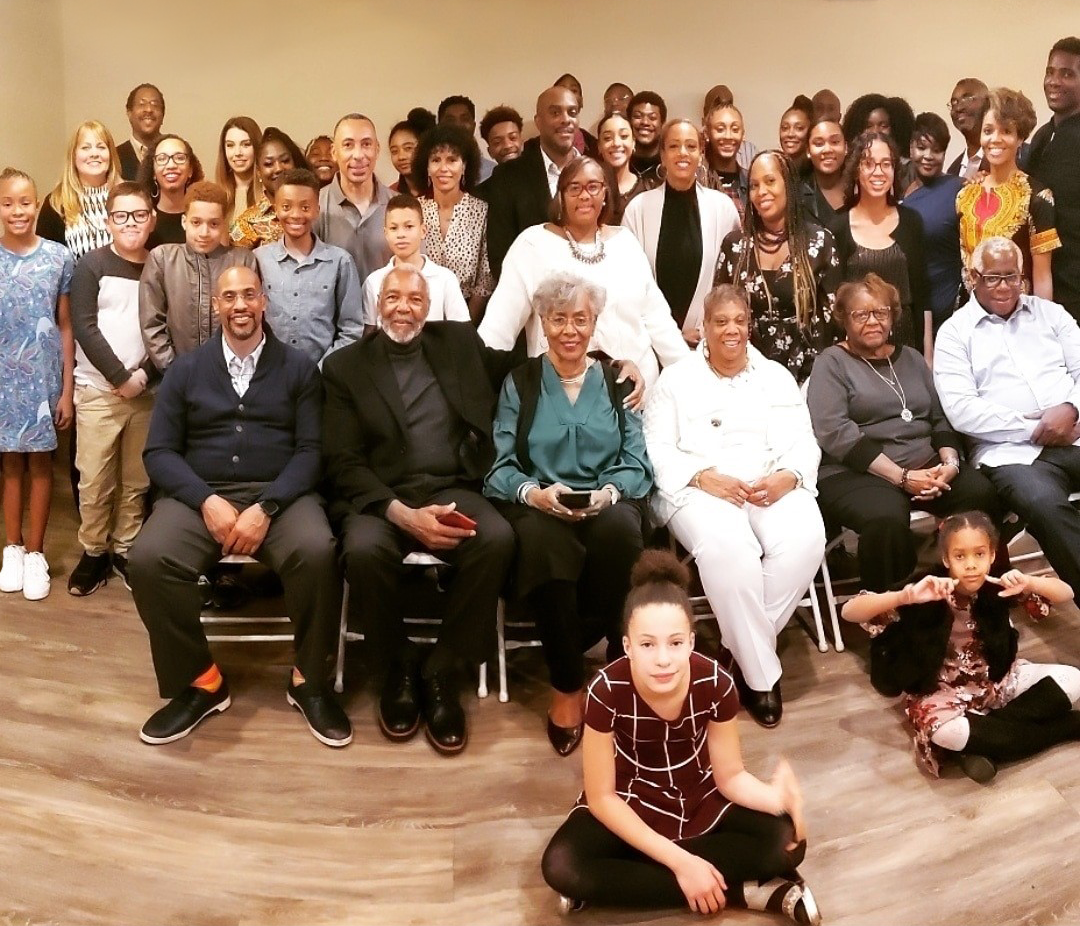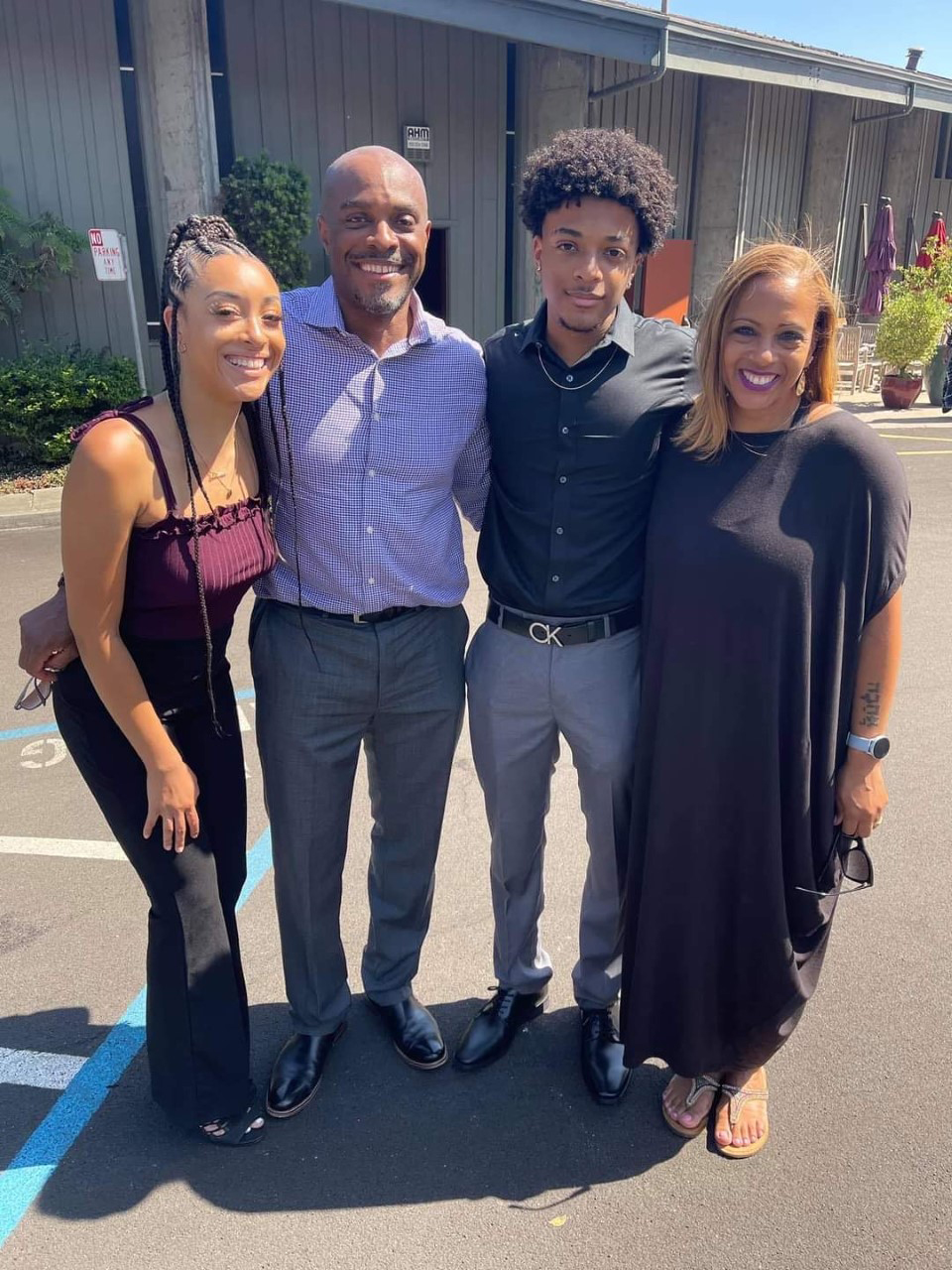Marvin Davis holds two roles in Felton Institute’s executive suite, Chief Financial Officer and Co-Chief Operating Officer. His calm demeanor belies the reality of the many responsibilities that fall under those titles. Neither does it reflect the discomfort many would have about reporting directly to a CEO who, like Marvin, held both positions only a few years earlier. Instead, Mr. Davis leads with confidence; his personality type and leadership style creating space for others to share their strengths.
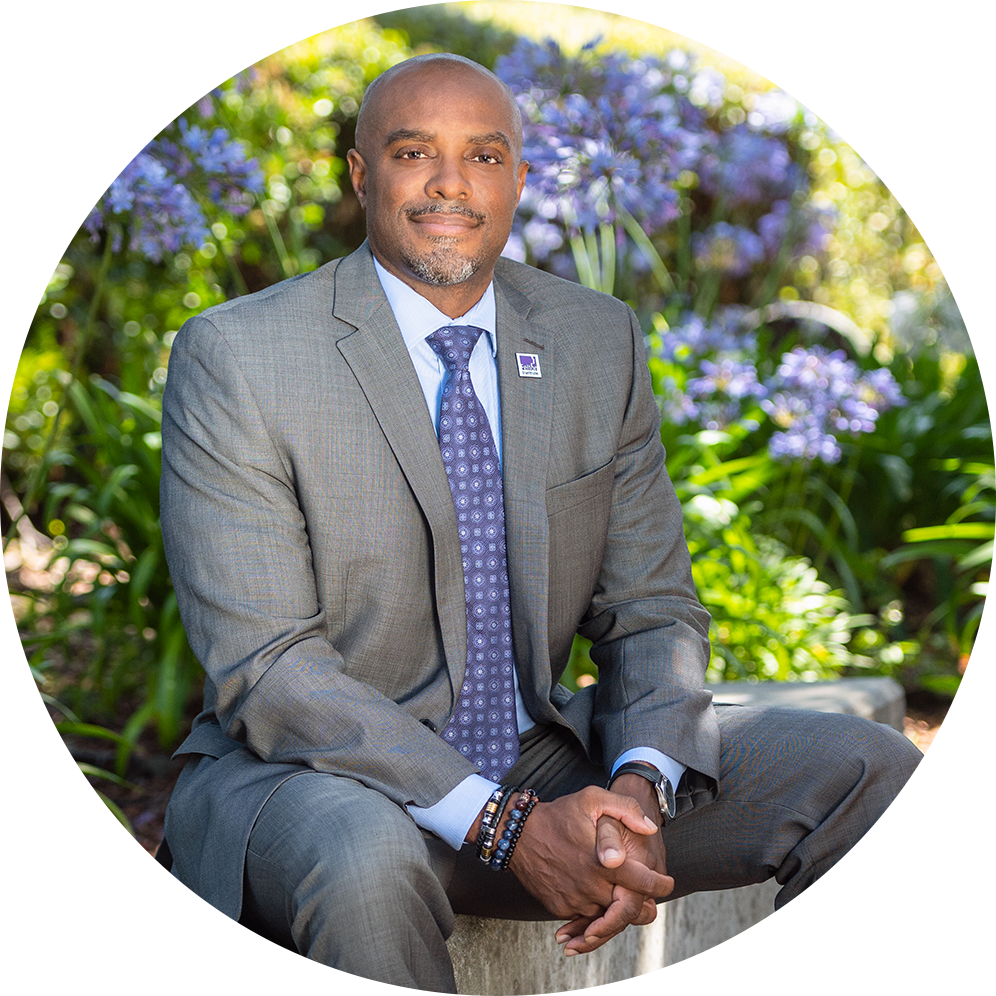
In part, his comfort level is the result of many years of the two men working together. He explains, “We have history. Back in 2002 was when I first met Al Gilbert, I had the honor of sharing office space with him. At that time, we both were consultants. Five black-owned businesses shared a wing comprised of multiple office spaces in Emeryville. And, you know, I had an opportunity to start doing some projects with him. One of those projects was contributing to the turnaround work of Felton Institute eighteen years ago. So, we developed a comfortable working relationship. Add to that, the fact that I appreciate and respect Al’s mentorship. When he joined Felton as CFO, I became its Controller.”
Preparation Meets Opportunity
Another attributable factor for Davis’ comfort level working with the CEO and interfacing with Felton’s Board of Directors, is his experience under the tutelage of another high-level professional – his father, Managing Partner of his own successful CPA firm.
“I come from a family of business owners. When I was a kid, my dad had one of the first Black CPA firms in the Bay Area and he was a managing partner there. My uncle had his own practice. So as a kid, I got to see what that looks like to be responsible for a staff of diverse individuals, whether it was African American, Filipino, Latino, or Caucasian.
“I also have accounting work experience that began during my college years with a tax bookkeeping firm, then auditing with a different Black-owned CPA firm, and in my own consulting business. Having been exposed to models of excellence, I am confident in my leadership and the team we’ve assembled at Felton. We do it right.”
Mentorship, Passing It Forward
A familiar adage comes to mind when considering the rich tutelage Davis has received – To whom much is given; much is expected. Therefore, the expectation would be for him to provide leadership that creates mentorship and advancement opportunities for the many individuals he manages. As expected, he does not disappoint.
“It’s important that we create an environment that motivates staff and challenges them to prepare for their next opportunity at Felton. This requires mentorship. However, providing that level of leadership for large numbers of individuals, means finding ways to interface meaningfully with our next level management team and to encourage them to do the same with their direct reports. I use leadership roundtable meetings to accomplish this. We have these sessions bi-monthly. Every two months we ZOOM, sharing strategies and troubleshooting concerns. So, when I look at my computer screen, I can see everybody’s snapshot right there in front of me. It’s incredible to see just the diverse makeup of our leaders. And it’s amazing because again, I was here years ago when it wasn’t as diverse. The change lets me know we are achieving our goal of inclusion and mentoring motivation. I take it seriously. We like to think we can be role models, getting their careers up and running and assisting them to reach some of their goals and milestones.”
Life Outside Felton
When Marvin says he identifies as a family man, it does not prepare you for the breadth of his extended family, a multi-generational community of siblings and their families, aunt and uncle, cousins, nieces and nephews, and adopted friends. But at the heart of his family life are his wife of more than 20 years and their daughter and son.
“I have been married for 22 years. Two kids, two wonderful kids. My wife and I are almost empty nesters. Our daughter is a third-year student at San Diego State majoring in kinesiology. She’s always been very focused, even driven, and her grades reflect it. As boys do, our 18-year-old son has taken a little bit longer to mature and develop his focus. But during his senior year at Berkeley High, it has been wonderful to watch him excel. He was one of those rare kids, I guess, who actually thrived during the pandemic. His GPA is close to 4.0 and he’s an officer for the Black Student Union at his school. We’re just waiting to see what college he’s going to go to. I am very proud of my family. My kids know that the sky’s the limit for them.”
- Marvin Davis’s Annual Thanksgiving Celebration
- Marvin Davis with his wife, and two kids
On Black History Month
“Well, first, I will say I always appreciate Black History Month. It’s unfortunate that some celebrate only one month because we should be celebrating all the time. I always think about this month retrospectively and prospectively. You know, we can always remember the history and there’s a lot of it. However, there’s also a lot to look forward to as well. We can reflect, but we also must look at where we’re going and how we can contribute to the advancement. There is opportunity. I think when I see it through that lens, I feel inspired.”
About Felton Institute: Founded in 1889, Felton Institute responds to human needs by providing cutting edge, evidence-based mental health and social services that transform lives. Felton Institute is a tax-exempt organization registered 501(c)(3) nonprofit under EIN 94-1156530.
Offering more than 50 acclaimed and honored programs that address homelessness, mental health, prenatal, adolescent, adult, and senior needs, Felton Institute provides services in San Francisco, Alameda, San Mateo, Marin, and Monterey counties. Felton’s social services and programs utilize the latest scientific research, combining cultural sensitivity, deep respect for client and staff, and a commitment to social justice.
Felton is the oldest non-sectarian and nonprofit social services provider in the City and County of San Francisco. For over a century, Felton Institute has been at the forefront of social service innovation, pioneering new approaches to meet underserved populations’ emerging needs. At the heart of our work is the belief that individuals and families in crisis must have access to services and resources to help them build on their inherent strengths and develop self-sufficiency. www.felton.org
